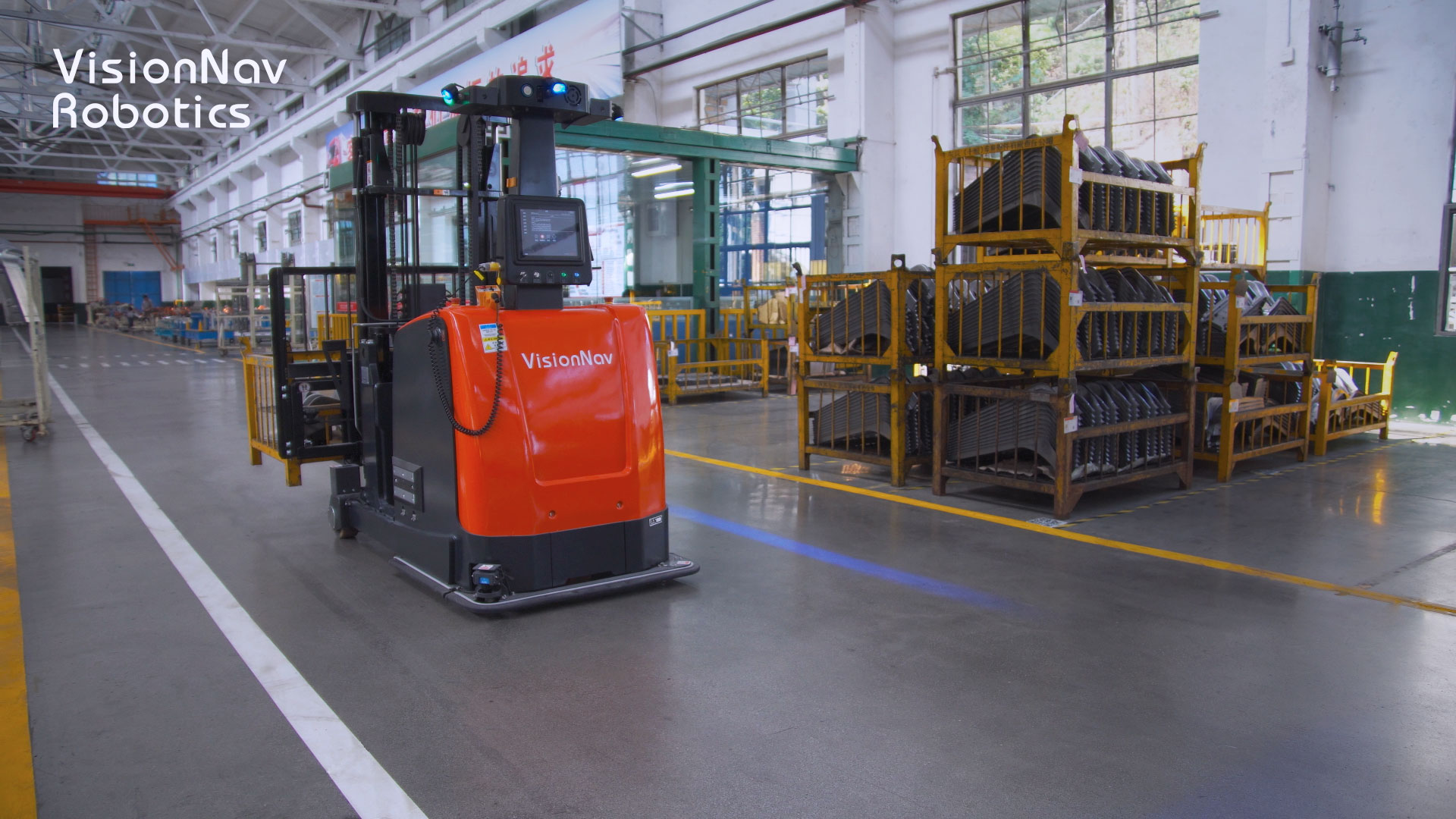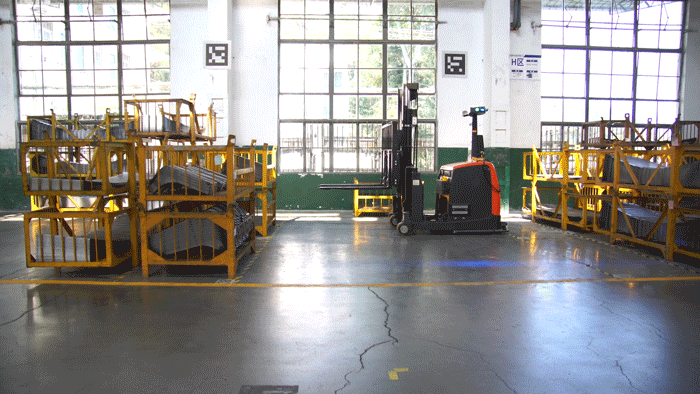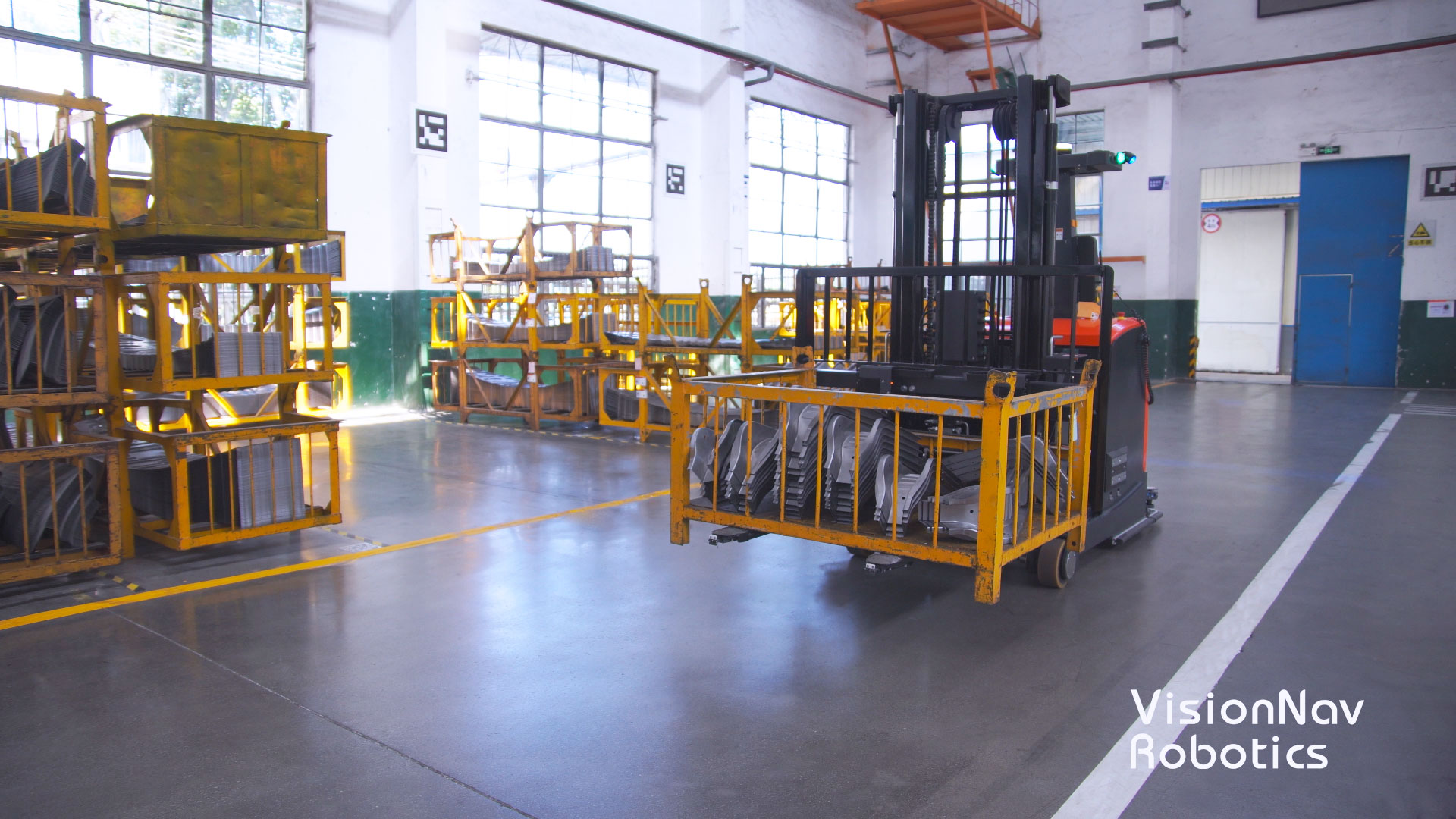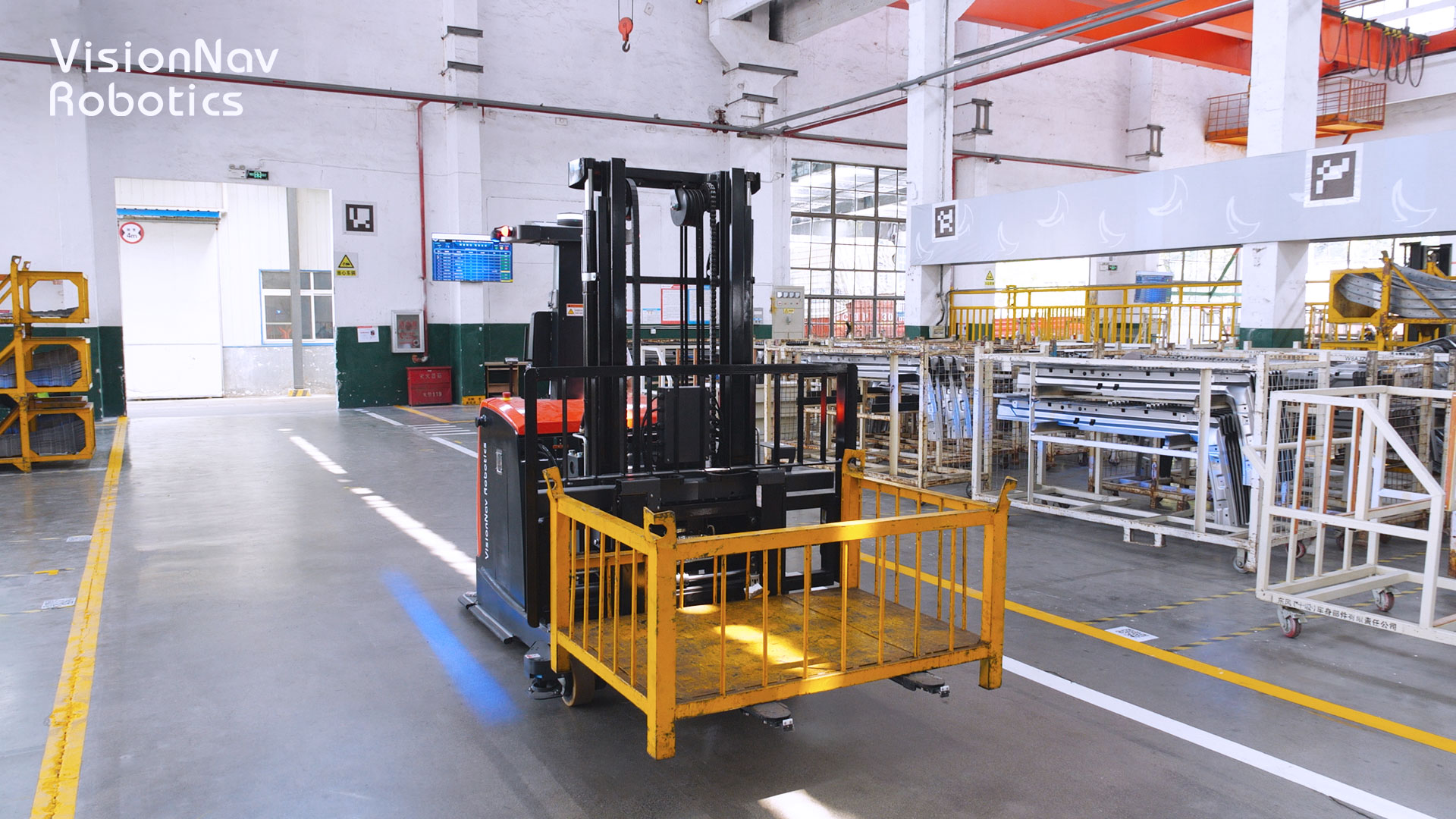The automobile manufacturing industry is one of the industries with the highest degree of automation application. Industrial robots like collaborative and mobile robots are widely used in auto manufacturing. The demand accounts for more than one-third of the total industrial robots market due to the industry's traits. Automobile manufacturing requires a high standard of product stability, consistency, and scale. Industrial robots can yield better qualifications for auto parts, meanwhile minimizing potential risks and net costs in the production process.
Shiyan, located in Hubei Province, is known as "China's Automobile City." It has a historical origin in the automobile industry. It is "built for cars and prosperous for cars." In this project, our client focuses on intelligent manufacturing and hopes to build a digital, smart, and refined factory. VisionNav robotics works with the client to transform and upgrade the internal logistics of the workshop and optimizes the precision rate when autonomous forklift picking of various material cages. In addition, autonomous forklifts can cooperate with the production line process, in-out warehousing, and flexible production management, such as efficient and accurate material handling.

Solution
VisionNav Robotics provides clients with highly flexible logistics automation solutions, from central control dispatching systems to terminal autonomous forklifts. The system will connect with the customer's WMS, which will be responsible for the management of storage locations and the management of material batches per storage location. The WMS dispatches tasks to the central control scheduling system according to the plan, dispatches autonomous forklifts to pick up materials, and realizes autonomous handling between semi-finished products area - spot welding area - finished product temporary storage area.
The results are fed back to the central control scheduling system when the autonomous forklift completes the operation process. The intercommunication with the WMS information flow makes material handling more accurate and can achieve intelligent warehousing management.

Stability, efficiency, and safety are the three factors that most automobile manufacturers will consider when choosing autonomous robots. The forklifts in the workshop are four kinds of bell-mouth cages of different specifications, and the transverse width of the fork surface of the cage ranges from 1370mm to 2300mm. When stacking carriers, especially cages, there is often a risk of cargo drop damage due to inaccurate stacking. VisionNav uses VNP20 autonomous forklift equipped with a perception module to improve the intelligent perception of the autonomous forklift, thus enabling adaptive adjustment of picking and placing goods.

The VNP20's adaptation presents better adjusting capability of the body posture according to the cargo and better identification of different types and sizes of pallets or cages. VNP20 can accurately calculate the jack position, fork distance, and reclaim cages. Also, the VNP20 fork has an automatic adjustment range of 440~1300mm (the outer spacing of the fork teeth).

Through the connection between WMS and the central control scheduling system, real-time exchange of storage location information, logistics information, etc., the VNP20 autonomous forklift operates efficiently and stably. It can timely cooperate with the production process for material transportation and supply, reduce the waiting time at the station, and achieve efficient handling.
With a high-flexible logistics solution, the auto part industry can improve the efficiency and accuracy of material transfer. Also, the central control system and the WMS system allow intelligent management of warehousing in the workshop.